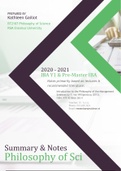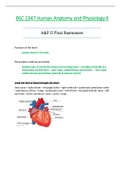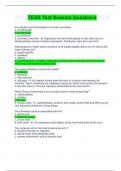Summary
Philosophy of Science Summary RSM COMPLETE (based on book & lectures)
- Course
- Institution
- Book
Inc. summaries of chapters 1 through 4. Summary based on (1) the book Introduction to the Philosophy of the Management Sciences by T. van Willigenburg, (2) Lecture slides and (3) recordings/comments by the lecturer, Dr. Yu Liu, of the Philosophy of Science course (taught to first year IBA & Pre-Ma...
[Show more]






